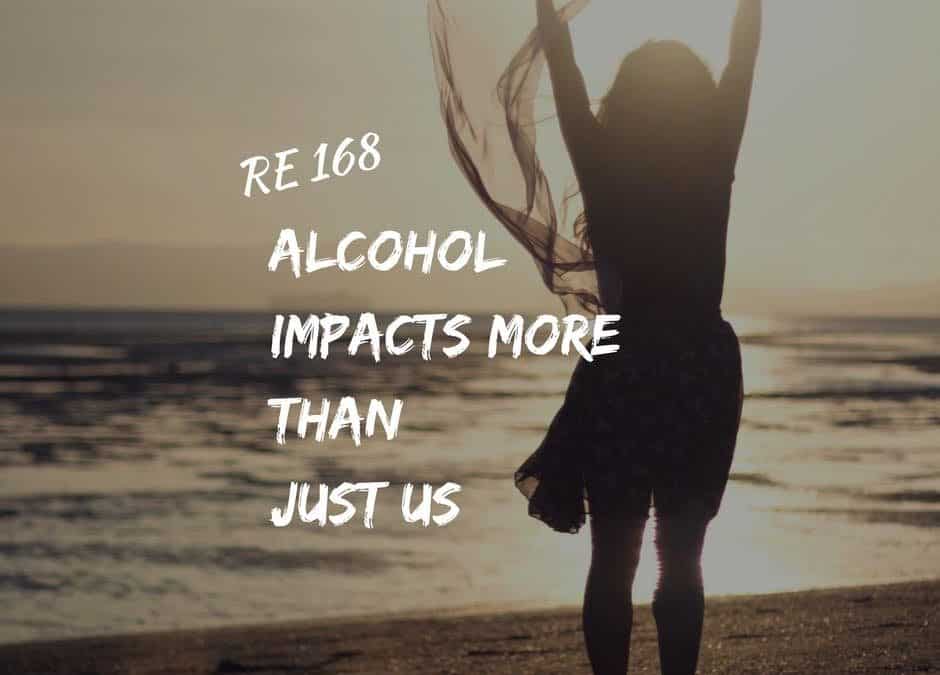
by Paul Churchill | May 7, 2018 | Podcast
Podcast: Play in new window | Download
Subscribe to the Recovery Elevator Podcast Apple Podcasts | | More
When we are in the throws of an addiction to alcohol, the effects go beyond just us. They affect our family and those closest to us.
After running the podcast for 3 years, Paul has begun to notice patterns emerging. One of the biggest patterns he noticed might be the key to successful sobriety: Accountability. Getting sober can be daunting, and the people around you are owed an explanation. The act of saying it out loud not only makes it real, but makes others aware of what you are trying to achieve. They can help keep you on track when things get difficult, and if your drinking has hurt anyone else in the past, it can be the first step towards forgiveness.
Telling the people in your life that you are trying to get and stay sober is probably the most important thing you can do to affect your chances of success.
Amy, with 422 days since her last drink, shares her story…
SHOW NOTES
[9:30] Paul Introduces Amy.
Amy is 33 years old, from Wisconsin, married with 3 kids. She works in human resources in healthcare, but is about to leave her job and focus on her family full time. She likes yoga, and the outdoors.
[12:00] What are your plans now that you are sober?
She wants to get more involved in her community.
[13:00] When did you realize it was time to quit drinking?
She was having a hard time moderating, was losing control.
[13:33] What rules did you have in place during your moderating phase?
She and her husband tried only drinking on weekends, only when at restaurants, only certain kinds of drinks, only on payday, etc. It didn’t work.
[16:30] Is your husband supportive of your decision to get sober?
Yes. He helps by not drinking around her and by keeping alcohol out of the house.
[17:07] When did you start drinking?
In high school. It got out of control in college. She adopted a party girl personality. She was drinking 4 beers a night. It progressed into a problem once she went through her first divorce. She felt hopeless and used alcohol to cope.
[21:57] How did you decide to quit?
She was drinking daily, feeling terrible. Some good things began to happen and she felt that it lifted her out of her funk. She got a new job, which enabled her to pay down her debt and she started taking care of herself again. She fell in love. The drinking was still crazy and she couldn’t control it. She tried to take a break, but it wouldn’t work. She was writing a lot in her journal, then went on an 8-day binge. She woke up from that and had hit rock bottom. She decided to quit on that day.. the difference was that she was ready to accept her situation.
[27:30] What was it like to reach the point of acceptance?
It was liberating. Acceptance brought self forgiveness, which enabled her to start moving forward in a new way.
[31:30] How did you do it? How did you quit?
She started to binge listen to recovery podcasts, she read This Naked Mind. She focused on being kind to herself. She reached out to sober friends and family. Connecting with close relatives and friends helped boost her confidence. They helped her get through the first few weeks. She began to see the bigger consequences of drinking on her health, career, relationships. Her husband supported her fully.
[34:37] At what point did you begin to see the benefits?
Day 2. The first few weeks there were headaches, sleep issues, etc. She experienced the pink cloud. She found out she was pregnant the month she quit drinking. She started looking at the bigger picture. She experienced normal activities as a sober person and was amazed at the difference.
[39:46] What’s on your bucket list?
She’s excited to be a stay-at-home mother soon. Many of her friends are reaching out to her in support of her sobriety.
[42:33] Rapid Fire Round
- What was your worst memory from drinking?Going to a concert and getting drunk, getting into a fight and walking around completely blacked out.
- Did you ever have an “oh-shit” moment?She woke up one day with a damaged car but didn’t remember what caused it.
- What’s your plan moving forward?To really stay active in her community. To focus on her family. To meditate more. To exercise. Hang out with the family. Reading in the evening to wind down.
- What’s your favorite resource in recovery?
- What’s the best advice you’ve ever received (on sobriety)?Put your sobriety first. Before kids, marriage, career.
- What parting piece of guidance can you give listeners who are in recovery or thinking about quitting drinking?Educate yourself about alcoholism. The truth will give you the confidence to go forward knowing what you have to do. Life is too short to be drunk.
- You might be an alcoholic if…You fear being a stay at home because you assume you will be drunk the whole time.
Resources mentioned in this episode:
Today’s podast episode is brought to you by Zip Recruiter and Casper.
Try Zip Recruiter today for free.
Get $50 off select mattresses by visiting Casper and us the promo code Elevator
This Naked Mind – A book by Annie Grace
In the Realm of Hungry Ghosts – A book by Gabor Maté
Connect with Cafe RE– Use the promo code Elevator for your first month free
Sobriety Tracker iTunes
Sobriety Tracker Android
Sober Selfies! – Send your Sober Selfie and your Success Story to info@recoveryelevator.com
“We took the elevator down, we gotta take the stairs back up, we can do this!”
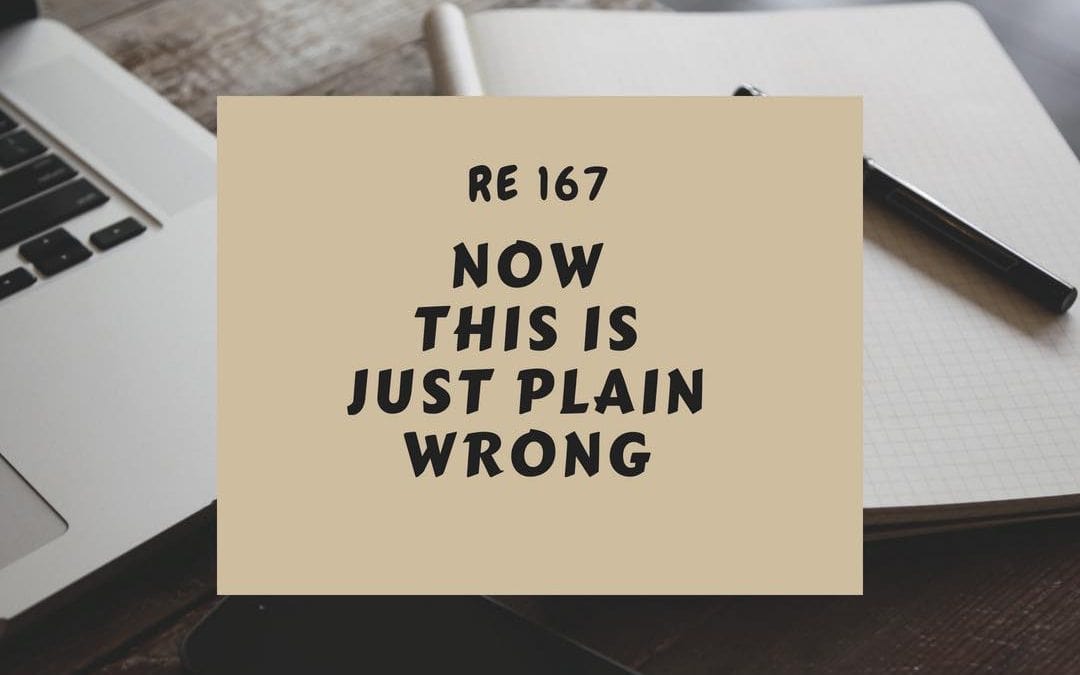
by Paul Churchill | Apr 30, 2018 | Podcast
Podcast: Play in new window | Download
Subscribe to the Recovery Elevator Podcast Apple Podcasts | | More
The alcohol industry gives the government funds to prove light drinking is safe.
In today’s era of information overload, it can be difficult to sort the truth from the strong opinions. As the lines between journalism, science and advertising continue to blur, it can become difficult to know where to stand when one can find a seemingly reputable article or study to support any side of any opinion.
The alcohol industry is no stranger to the ways of public relations. The NIAAA (National Institute on Alcohol Abuse and Alcoholism) is a government established institution that funds approximately 90% of research on the effects of consuming alcohol in the US. Regarding a recent study on the effects of light drinking, it is no surprise to find out that $67 million was provided by 5 big alcohol companies, most likely to ensure that the results of the study fell in line with their message that alcohol is good for you.
Remember that alcohol is still poison, it’s still bad for you, and consuming alcohol still has real consequences, despite the what the heavily funded opinions of the alcohol industry would lead you to believe.
Daniel, with 128 days since his last drink, shares his story…
SHOW NOTES
[10:37] Paul Introduces Daniel.
Daniel is 43 years old, has a girlfriend and an 8 year old daughter. He works in telecom sales and enjoys biking, running, and reading.
[14:10] When did you first realize that you had a problem with drinking?
In his early 20s. Alcoholism runs in his family. He started drinking regularly in high school, then it became excessive in college. In his mid 20’s he began drinking in solitude.
[18:15] Talk to us about the 20 years you were drinking.
There were phases where he would think he was okay because he was functioning, but he would occasionally binge drink. He drank less after he got married in his late 20s but it eventually ramped up again. When he was binge drinking he wouldn’t eat.
[20:28] When did you first attempt to quit?
He started going to AA in his mid 20s but he wasn’t ready.
[21:10] Did you experience a rock bottom? Did you have a faulty off switch?
No, it was gradual. He would drink before work. He slowly lost control as depression and anxiety set in. He finally talked to his family and decided to go to a inpatient detox facility. It was difficult to stop once he started. He started drinking again after 25 days sober, thinking it was different.
[26:30] Tell us about your experience with the incredibly short memory (ISM).
He would find himself returning to the hospital after a short time away.
[28:33] What inspired you to quit, most recently?
His family. He spent some time away from them and it inspired him to quit. He experienced moments of clarity and made a decision. He found some supportive people to help him.
[32:02] What were your first 30 days like? How did you deal with cravings?
He drank a lot of seltzer water and non-alcoholic beer.
[34:10] What is a typical day in your recovery? How have you made it to 128 days?
He found a local AA group, and got a sponsor. He reads a lot. 4 or 5 AA meetings a week.
[41:10] Rapid Fire Round
- What was your worst memory from drinking?
A horrible physical detox.
- Did you ever have an “oh-shit” moment?
He was drinking at work.
- What’s your plan moving forward?He wants to stay accountable, and tell his story. Keep reading and learning.
- What’s your favorite resource in recovery?The books, podcasts, AA
- What’s the best advice you’ve ever received (on sobriety)?
Follow your drink to the end. You’ll start with one drink but end with a three-day bender.
- What parting piece of guidance can you give listeners who are in recovery or thinking about quitting drinking?
If you’re listening to RE, most likely you’re heading down the path.
- You might be an alcoholic if…
If you go home and drink 8-12 beers, but then hide the cans so no one sees how much you drink, even though you live alone.
Resources mentioned in this episode:
LINK TO STUDY ARTICLE
Recovery – A book by Russell Brand
This Naked Mind – a book by Annie Grace
The Untethered Soul – by Michael Singer
Girl Walks Out of a Bar – by Lisa Smith
Connect with Cafe RE– Use the promo code Elevator for your first month free
Sobriety Tracker iTunes
Sobriety Tracker Android
Sober Selfies! – Send your Sober Selfie and your Success Story to info@recoveryelevator.com
“We took the elevator down, we gotta take the stairs back up, we can do this!”
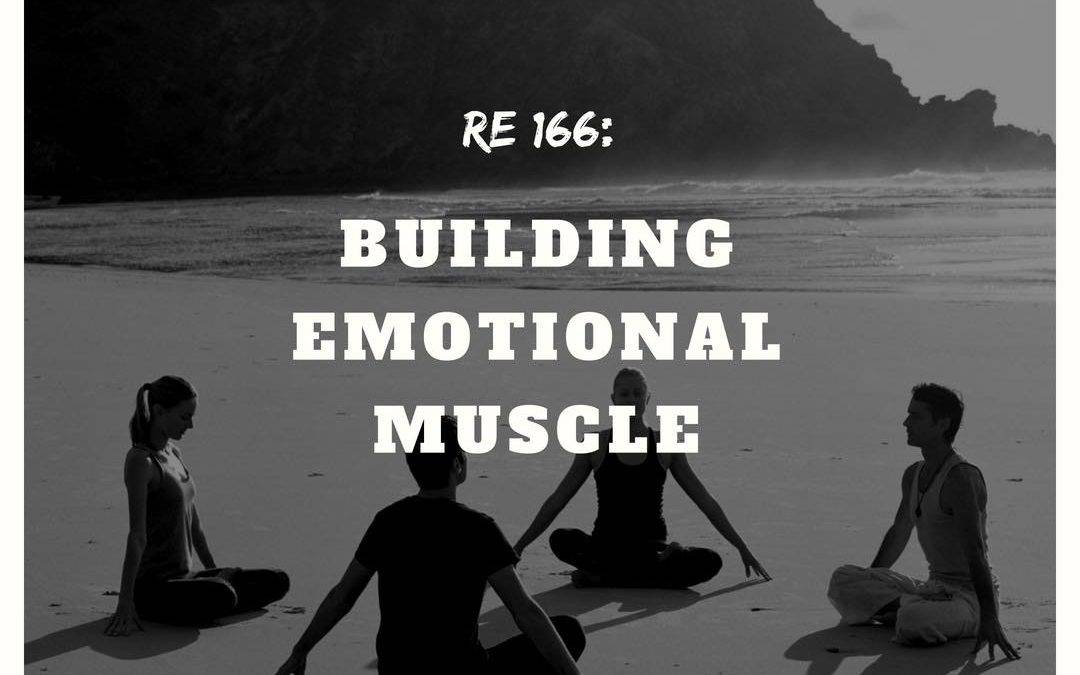
by Paul Churchill | Apr 23, 2018 | Podcast
Podcast: Play in new window | Download
Subscribe to the Recovery Elevator Podcast Apple Podcasts | | More
A quote from “Drinking: A love Story” by Caroline Knapp sums up the theme for today’s podcast:
“Early sobriety has the quality of vigorous exercise, as though each repetition of a painful moment gone without a drink serves to build up emotional muscle.”
Life will happen. We can’t control what challenges life will send our way but we can control how we respond. Each passing trial is an opportunity to build one’s sobriety muscles, which get stronger over time as healthy habits and ways of thinking become more deeply ingrained.
Quitting drinking is difficult because not only is alcohol physically addicting, but we often turn to alcohol to help us cope with life’s many challenges. In sobriety, we find an opportunity to learn new coping skills and rewire our brain to handle difficult times without turning to alcohol for help.
Samantha, with 18 days since her last drink, shares her story…
SHOW NOTES
[7:20] Paul Introduces Samantha.
Samantha is 27 years old, from Louisiana. She has a girlfriend and a cat, works at a lawfirm, likes music, travel, reading and listens to podcasts. She’s a geography student, returning to school to finish her degree.
[8:30] When did you first notice that you had a problem with drinking?
In her early 20s. She used alcohol to deal with her anxiety. She thinks alcohol is a big part of society in Louisiana. She has family members that struggle with alcohol. An abusive relationship drove her to drinking more than normal. All of her friends seemed to drink a lot.
[12:35] What did drinking a lot look like for you?
Mostly just wine, and eventually whiskey, which became her alcohol of choice.
[13:07] Did you ever put any rules into place to try and control your drinking?
Yes, she would buy smaller bottles or only drink on weekends.
[13:50] What was your rock bottom moment? Why did you decide to quit?
Sick and tired of being sick and tired mostly. A therapist refused to see her while she was drinking. She was angry. She refused the rehab and kept drinking. A different time she had written in her journal about quitting drinking, only to go out later that night and black out again.
[18:34] What was it like to break that promise to yourself?
She woke up and felt terrible, shameful, embarrassed.
[19:55] How has sobriety affected your borderline personality disorder?
Her emotions are normally intense and fleeting. Alcohol helped her maintain an even keel. Without alcohol, she’s switched to Zoloft. It’s difficult to deal with strong emotions without alcohol. She’s now optimistic about her future and has decided to go back to school, realizing that alcohol was getting in her way.
[23:40] How has your behavior changed since you’ve quit?
She goes to bars less. She is looking for more things to do at home. She’s trying to fill the void left by alcohol with healthy activities.
[24:40] Is your partner trying to get sober?
No, she wants to stop but she is continuing. It’s difficult to see her continue, not because it makes her want to drink, but because she sees the effect alcohol is having on her.
[27:06] What benefits are you getting from quitting?
Her skin cleared up. She’s lost weight. Her emotions are easier to handle. She’s now able to see that one drink may start well but it will lead to a terrible conclusion.
[30:27] Have you lost anything to alcohol?
She feels like she lost her dignity. Various memories from drinking make her feel shameful or embarrassed.
[32:30] What advice would you give to your younger self?
Not to smoke or drink ever! She received info about substances while in school, but feels like it had no impact. She would tell herself to love herself. She thinks loving oneself is the root of many of the decisions we make.
[35:04] What is your proudest moment so far in sobriety?
She was told that she was a great student by an old professor. Also, she went to a bar and didn’t have any drinks.
[36:30] Rapid Fire Round
- What was your worst memory from drinking?During a flood in 2016, she was caught in a flash flood and had to be rescued while drunk.
- Did you ever have an “oh-shit” moment?Her gf showed her a picture of her sleeping on the ground.
- What’s your plan moving forward?She is going to connect with and stay close with sober friends. She will focus on her goals.
- What’s your favorite resource in recovery?Other sober people. Podcasts: Recovery Elevator, The Mental Illness, Happiness Hour, Crazy in Bed, Your own Magic,
- What’s the best advice you’ve ever received (on sobriety)?Keep your goals in front of you. You can always go back to drinking.
- What parting piece of guidance can you give listeners who are in recovery or thinking about quitting drinking?Any amount of time drinking is a win. If you mess up, don’t beat yourself up about it.
- You might be an alcoholic if…“You get drunk at 10am at your grandmother’s birthday party.”
Resources mentioned in this episode:
Drinking: A Love Story – By Caroline Knapp
The Subtle Art of Not Giving a F*ck – by Mark Manson
Connect with Cafe RE– Use the promo code Elevator for your first month free
Sobriety Tracker iTunes
Sobriety Tracker Android
Sober Selfies! – Send your Sober Selfie and your Success Story to info@recoveryelevator.com
“We took the elevator down, we gotta take the stairs back up, we can do this!”
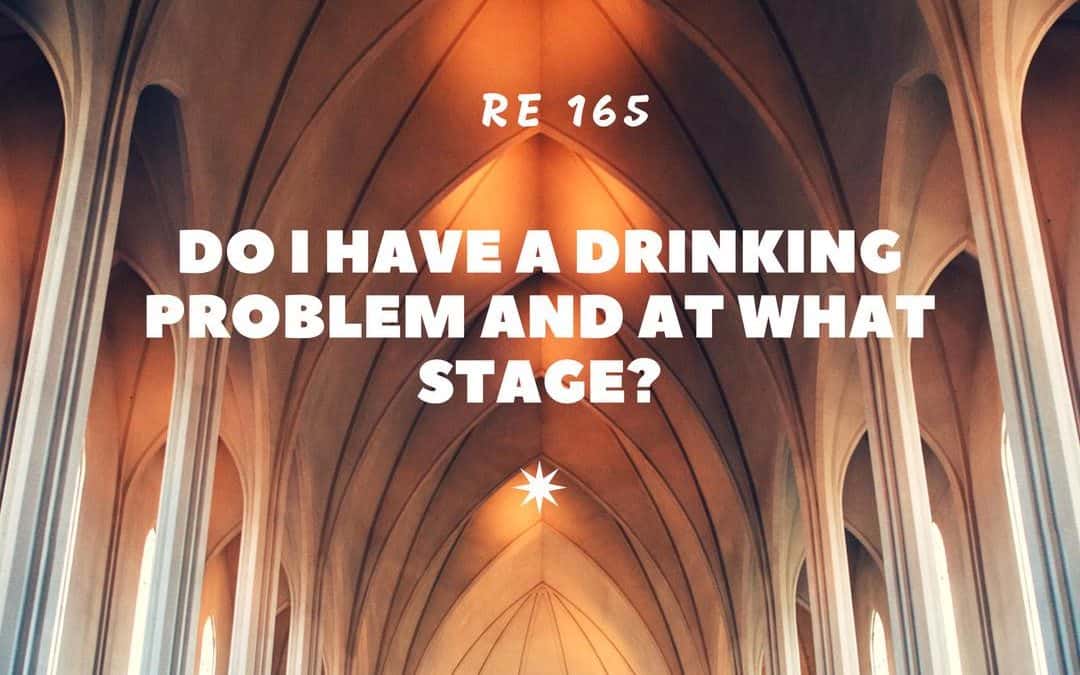
by Paul Churchill | Apr 16, 2018 | Podcast
Podcast: Play in new window | Download
Subscribe to the Recovery Elevator Podcast Apple Podcasts | | More
“Do I have a drinking problem?” Part II
The first episode under this particular theme came out back in March of 2015.
In “Drinking: A Love Story” by Caroline Knapp, a questionnaire is presented that will help you determine whether or not you have a drinking problem, and if yes, at what stage your drinking problem is. See the questions below:
1. Do you drink heavily when you are disappointed or have had a quarrel
with someone?
2. When you have trouble or feel under pressure, do you always drink more heavily than usual? |
|
| 3. Can you handle more alcohol now than when you first started to drink? |
|
4. Have you ever been unable to remember part of the previous evening, even though
your friends say you didn’t pass out? |
|
5. When drinking with other people, do you try to have a few extra drinks when others
won’t know about it? |
|
| 6. Do you sometimes feel uncomfortable if alcohol is not available? |
|
| 7. Are you more in a hurry to get your first drink of the day than you used to be? |
|
| 8. Do you sometimes feel a little guilty about your drinking? |
|
| 9. Has a family member or close friend express concern or complained about your drinking? |
|
| 10. Have you been having more memory “blackouts” recently? |
|
| 11. Do you often want to continue drinking after your friends say they’ve had enough? |
|
| 12. Do you usually have a reason for the occasions when you drink heavily? |
|
| 13. When you’re sober, do you sometimes regret things you did or said while drinking? |
|
14. Have you tried switching brands or drinks, or following different plans to control your
drinking? |
|
15. Have you sometimes failed to keep promises you made to yourself about controlling or
cutting down on your drinking? |
|
| 16. Have you ever tried to control your drinking by changing jobs or moving to a new location? |
|
| 17. Do you try to avoid family or close friends while you are drinking? |
|
18. Are you having more financial, work, school, and/or family problems as a result of
your drinking? |
|
| 19. Do more people seem to be treating you unfairly, without reason? |
|
| 20. Do you eat very little or irregularly during the periods when you are drinking? |
|
21. Do you sometimes have the “shakes” in the morning and find that it helps to have a
“little” drink, tranquilizer or medication of some kind? |
|
| 22. Have you recently noticed that you can’t drink as much as you used to? |
|
23. Do you sometimes stay drunk for several days at a time?
24. Do you sometimes feel very depressed and wonder if life is worth living? |
|
| 25. After periods of drinking do you sometimes see or hear things that aren’t there? |
|
| 26. Do you get terribly frightened after you have been drinking heavily? |
|
Know that actions often speak louder than words. If you are listening to a recovery podcast, filling out a recovery questionnaire, wondering whether or not you have a problem, then chances are your actions are telling you that you do. That conclusion is an okay place to be, too. Better to realize it earlier than later so you reach out and get help if you need it.
Darla, with 3 years since her last drink, shares her story…
SHOW NOTES
[11:00] Paul Introduces Darla.
Lives in Grand Junction, Colorado, 52 years old, mother of two.
[13:00] When did you first realize that you had a problem with drinking?
Drinking has been a part of her life for a long time but it never had power over her until her mid 40’s. It happened gradually. She tried to control it with rules, but despite her efforts it continued to escalate.
[16:00] How old were you when you put limits on your drinking?
Around 45 she drank regularly and 46 it progressed.
[16:54] Was there a specific stressor in your life at the time?
The end of her marriage. Her therapist advised her to get a divorce. She had to get a restraining order. It was easy to lean on drinking because she grew up around it.
[19:15] Did anyone in your family history struggle with alcohol?
Her father’s side. Her grandfather, father and brother. Others have issues with other kinds of addiction.
[22:13] What were the rules you put in place to try to reign in your drinking?
She tried to limit the day of the week. Her targets kept moving as she kept breaking her own rules. She felt like it was against her will.
[23:33] Did you ever attempt to quit before this attempt?
Not really. Despite a DUI, a court order to stop drinking, and CBT classes she continued to drink. When she quit, she was “white knuckling” it. She had moderate success but then binged at a holiday party, which lead her to another DUI and waking up in jail. The consequences terrified her and scared her enough to quit.
[31:00] How did you end up quitting?
She called a family attorney. She went to therapy, both individual and group. She ended up in AA.
[32:45] What do you do when you get cravings?
She recognizes the thoughts that lead to relapse. She still feels powerless against alcohol.
[34:15] What unpleasant things did you have to do to stay sober?
She went to AA. She didn’t want to admit that she was an alcoholic. She didn’t want to admit that she was afraid. She had to accept the circumstances.
[35:35] Has being in recovery helped you at work?
It gave her a level of compassion others may not have. She can help guide people toward resources. She’s letting people know about it slowly, especially at work.
[40:20] Why are you going to attend the Cafe RE trip to Peru?
She wants to challenge herself. She wants to seize new opportunities.
[41:22] Rapid Fire Round
- What was your worst memory from drinking?
Waking up in a jail cell and not remembering how she got there.
- Did you ever have an “oh-shit” moment?
Going in to work hungover, knowing that she wasn’t able to drive.
- What’s your plan moving forward?Keep doing the one day at a time.
- What’s your favorite resource in recovery?Meditation, exercise, activities, service / helping others.
- What’s the best advice you’ve ever received (on sobriety)?
Get out her own head and to help others. Helps with cravings, anxiety.
- What parting piece of guidance can you give listeners who are in recovery or thinking about quitting drinking?
Examine yourself. Are you willing to do whatever it takes?
- You might be an alcoholic if…
“you come to in jail, in a suicide suit, and you wonder where the rest of the bottle is.”
Resources mentioned in this episode:
Drinking: A Love Story – A book by Caroline Knapp
Connect with Cafe RE– Use the promo code Elevator for your first month free
Sobriety Tracker iTunes
Sobriety Tracker Android
Sober Selfies! – Send your Sober Selfie and your Success Story to info@recoveryelevator.com
“We took the elevator down, we gotta take the stairs back up, we can do this!”
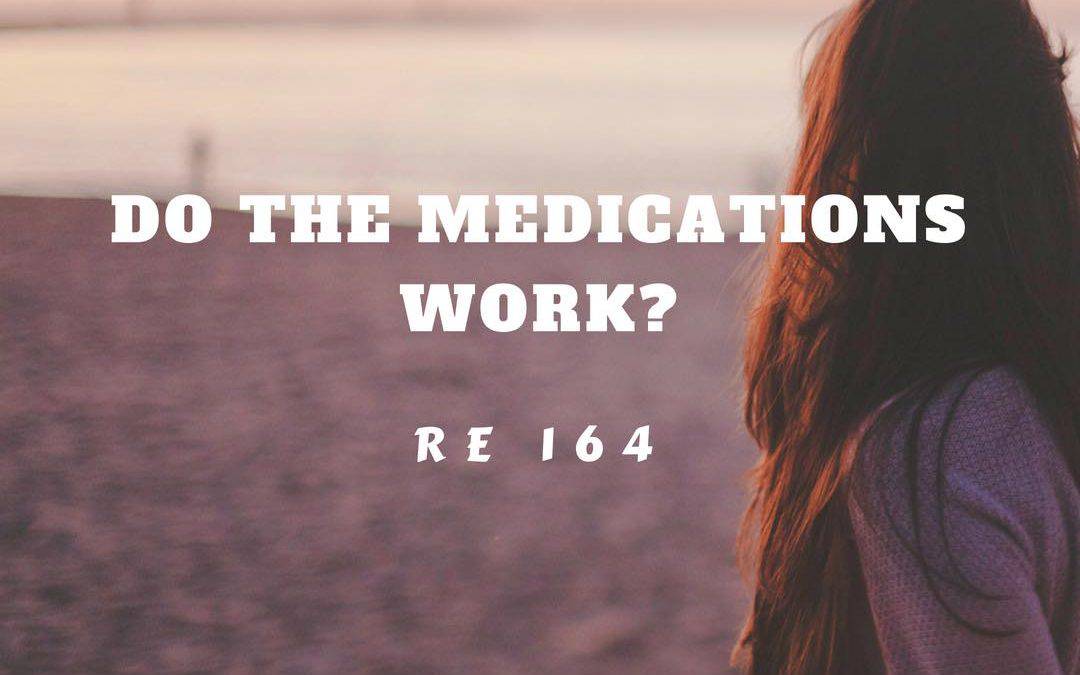
by Paul Churchill | Apr 9, 2018 | Podcast
Podcast: Play in new window | Download
Subscribe to the Recovery Elevator Podcast Apple Podcasts | | More
Do the medications work?
Paul reads messages he received from different podcast listeners about their experiences with some of the various medications often prescribed as quit aids for quitting drinking.
Though they are not known to be an effective all-in-one cure for alcoholism, they appear to be a positive piece to the recovery portfolio for some.
Ed, with 11 days since his last drink, shares his story:
SHOW NOTES
[6:20] Paul Introduces Ed.
Sober for 11 days. Has been on Naltrexone for 6 years. 40 years old. Research scientist, molecular biologist. Has two young children. Really enjoying his work. Started to drink more seriously during mid 20’s.
[10:13] At what point did Naltrexone enter the picture?
During his mid 30’s. He was falling down stairs and wetting his bed on the weekends, yet he was still in denial. He sought out a medicine to help with his hangover symptoms, found the Sinclair method on the internet.
[13:05] Did you go straight to Naltrexone or did you try other methods first?
He went to his doctor and asked him about Naltrexone. He had tried AA but didn’t like it. The doctor was cautious, but gave him the green light.
[15:10] Having used Naltrexone, what is your take on alcoholism being defined as a disease?
Alcoholism is definitely a disease. It runs in families, etc. People who don’t have the disease don’t understand what it’s like. People drink for different reasons, but once addicted people are equal.
[17:16] Where is the disconnect between the recovery and medical communities?
Not enough research in general, and in recovery methods. The numbers we are working with today probably aren’t the whole picture. Not tied into addiction in general. One thing he wants to emphasize is that Naltrexone should not be used by an alcoholic to try and drink like a normal person. It can help someone quit but should only be used for that. If you are already quit, stay quit.
[21:22] If it feels more or less under control at this point, why aim for total abstinence?
He isn’t getting anything out of it at all anymore. He feels the overall force of alcohol in our lives is destructive. He feels great.
[24:44] Where are you at with cravings?
Cravings are decreased with Naltrexone. He likes not closing the door completely because he feels like he can fit in. It’s easier to just have a little bit.
[26:08] What about your friends who had a negative experience with Naltrexone?
One friend ended up going on Naltrexone. He used it moderately and it had negative effects. Moderate reward can be more addicting than regular reward.
[29:00] Are you tempted to not use the pill?
He’s tempted but has never broken the rule, which is why he feels he’s been successful so far.
[30:09] How does your routine work with the pill?
He just takes it every day.
[31:15] Do you agree that Naltrexone only cures the physical part of alcohol addiction?
Yes. It’s why it may not work for everyone. It only address the physical part, but doesn’t address the mental and spiritual parts of alcohol addiction.
[35:20] Do you think it is fear that is keeping you from aiming for complete abstinence?
It plays a part. It’s difficult to leave behind. He recognizes the fear but knows that he’s strong enough to overcome it and move forward with his life in a healthy and positive way.
[36:07] Rapid Fire Round
- What was your worst memory from drinking?
On a ski trip, he drank much more than everyone else. He wet the bed in front of all of his friends.
- Did you ever have an “oh-shit” moment?
Out with friends, he realized he was the drunk that everyone used to compare themselves to.
- What’s your plan moving forward?Keep working on the mental and spiritual aspects of this. Aiming for abstinence.
- What’s your favorite resource in recovery?Online forum: Sinclair method.
- What’s the best advice you’ve ever received (on sobriety)?
Can’t do it alone. Hear the stories. Reach out.
- What parting piece of guidance can you give listeners who are in recovery or thinking about quitting drinking?
Alcoholism is a monster. Don’t underestimate it. Try AA, etc. Don’t give up.
- You might be an alcoholic if…
you find yourself in Safeway buying 3 tall cans of Miller high life and behind you is a homeless man in line buying the same thing.
Resources mentioned in this episode:
This podcast episode was brought to you by Zip Recruiter. Visit ziprecruiter.com/elevator and try it for free.
Connect with Cafe RE– Use the promo code Elevator for your first month free
Sobriety Tracker iTunes
Sobriety Tracker Android
Sober Selfies! – Send your Sober Selfie and your Success Story to info@recoveryelevator.com
“We took the elevator down, we gotta take the stairs back up, we can do this!”







